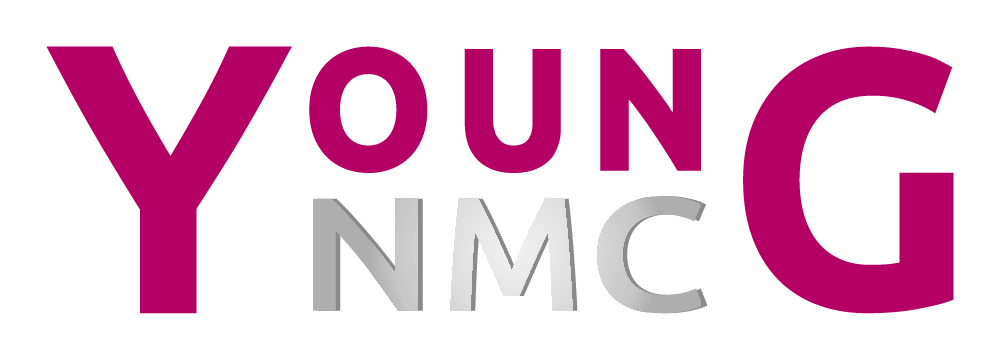
YoungNMC Symposium 2025
We're excited to announce the YoungNMC Symposium 2025, taking place on Tuesday, August 26th at Vrije Universiteit Amsterdam!
This year's theme: Cellular Metabolism
Join us for a day full of inspiring taks, networking, and fresh insights into the world of metabolomics.
Featuring keynote speakers:
Prof. Bas Teusink - System Biology Lab, A-LIFE/AIMMS, VU Amsterdam
Dr. Esther Zaal, Utrecht University
Location: O2 Building, De Boelelaan 1108, Amsterdam
Register here: https://docs.google.com/forms/d/e/1FAIpQLSe8gasVyNqLYrnl8i7pwv4uyko2N90byxKSbMI1IYbxg01rOA/viewform
This event is a pre-meeting to the Benelux Metabolomics Days 2025 (August 27-28, Leiden), making it the perfect start to an exciting week in metabolomics research!
Questions? Contact us at info@youngnmc.nl or s.moco@vu.nl
Mission of the YoungNMC
The mission of the YoungNMC is to connect early-career metabolomics researchers from the BeNeLux. We want to enable this by organising several events, such as Young career symposia, lab tours, workshops and social events (drinks, BBQs, etc.)
The goals of these events are to get to know each other in a low key manner, learn from one another, build your own network within the Metabolomics Community, and find potential research partners for your own study.
Get involved in the YoungNMC network!
Want to become a member of the YoungNMC? Signing up is easy.
Send us an email at info@youngnmc.nl, with the following information:
Name (+title if applicable)
Email adress on which we can contact you
Affiliation (University + research group + country)
Year of latest degree
Expertise area
Years of experience with metabolomics
By sending us the above information, you agree on being added to the mailing list of theYoungNMC. You can unsubscribe at any time.
A more detailed privacy policy can be found at the bottom of the page.
Network
Our network currently connects early-career researchers (MSc, PhD, PostDocs) from several disciplines related to metabolomics:
-
Wet lab (targeted and untargeted)
- Nuclear Magnetic Resonance (NMR)
- Mass Spectrometry (MS)
-
Computational approaches
- Text mining
- Chem(Bio)Informatics
-
Research areas
- Mammalian
- Nutrition
- Plants
- Pharmacology
Committee members
Michel van Weeghel

Amsterdam UMC, location AMC, Amsterdam, the Netherlands
Publications: https://scholar.google.lu/citations?hl=nl&user=PVquRJ0AAAAJ
Website: https://www.amc.nl/web/core-facility-metabolomics.htm
Metabolomics research in one line: Develop metabolomics tools to measure the dynamics in metabolism
Expertise: Metabolism in health and disease, mass spectrometry, ion mobility
After a study in biomedical sciences, Michel started a PhD in biochemistry and metabolic diseases at the AMC in Amsterdam and performed a postdoc in analytical chemistry at the university of Leiden. Currently, he is the manager of the Core Facility Metabolomics (CFM) at the Amsterdam UMC, location AMC. The focus of the CFM is to develop and improve analytical methods to measure a wide range of metabolites in several matrices. The ambition is to maintain and expand the CFM in terms of state-of-art instrumentation and personnel. The analytical focus will be on developing new strategies in the metabolomics research field, including the development of tracer-based metabolomics. Michel believes that metabolomics will be able to help us understand metabolism in a broad sense and will be useful for several research disciplines, like metabolic diseases, oncology, immunology, endocrinology, and more. By developing these state-of-art metabolomics techniques we will be able to measure the severity of several metabolic diseases, which will help in predicting disease severity outcomes and will aid work on personalized treatments.
Denise Slenter
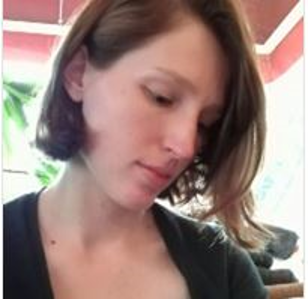
Maastricht University (UM), Maastricht, the Netherlands
Publications: https://orcid.org/0000-0001-8449-1318
Github: https://github.com/DeniseSl22
Twitter: https://twitter.com/SMaLLCaT4Sci (@SmaLLCaT4Sci)
Metabolomics research in one line: Integration of pathway knowledge bases into graph databases to allow for automated metabolomics data visualisation
Expertise: Identifier mapping, pathway & network analysis, graph databases
Just finished the 2nd year of her PhD project at Maastricht University at the BioInformatics group BiGCaT, under the supervision of Dr. Egon Willighagen and Prof. Dr. Chris T. Evelo. The main focus of this research is integrating (more) metabolomics data with existing knowledge bases on metabolic pathways (e.g. WikiPathways, Reactome) in an automated manner. Experienced in working with graph databases (Neo4j), network visualisation tools (Cytoscape), Matlab, Python, Java and R. Before Denise started her PhD, she graduated from the Forensic Science Master (University of Amsterdam, UvA, NL) and the Education and Communication Master (University of Technology Eindhoven, TU/e, NL), direction Chemistry. She started her academic path with a BSc in Chemical Engineering at the TU/e.
Sandrien Desmet
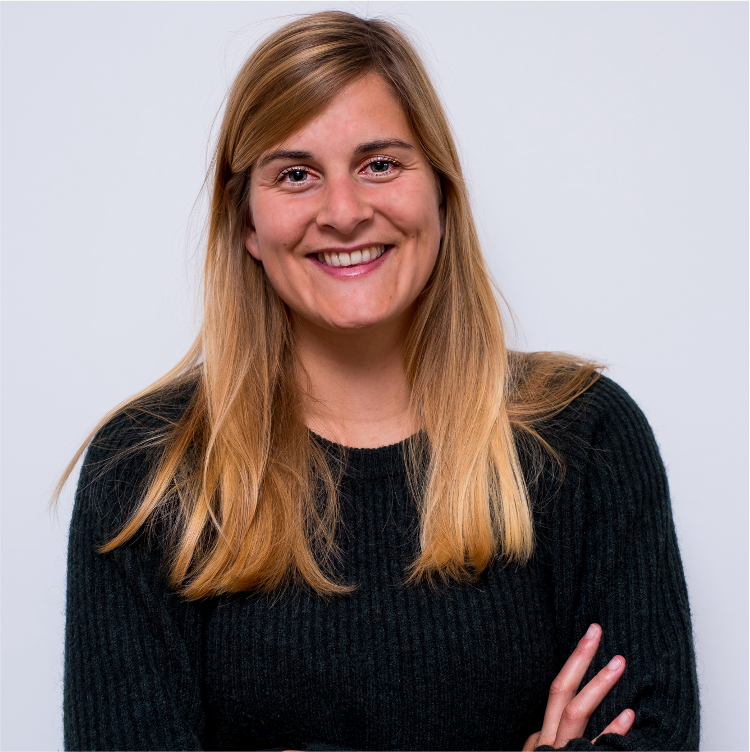
VIB Metabolomics Core, Ghent, Belgium
Website: https://www.linkedin.com/in/sandrien-desmet-58179172/
Publications: https://biblio.ugent.be/person/802001932053
Metabolomics research in one line: Development of dry and wet lab tools for the structural characterization of the secondary metabolome of biocrops
Expertise: (Un)targeted LC/GC-MS, metabolite annotation, mass spectrometry, method development
In 2014, she graduated as a Master of Science in Biochemical Engineering Technology at Ghent University. During her master’s thesis she worked on the optimization and validation of the toxicological screening of drugs in whole blood samples on HPLC-PDA at the National Institute for Criminalistics and Criminology (Brussels, Belgium). Following her master’s thesis she started working in the bio-energy and bio-aromatics group of prof. Wout Boerjan (VIB-UGent Center for Plants Systems Biology) to study the aromatic metabolism of poplar. During her PhD, she developed a combination of dry and wet lab tools for the structural characterization of specialized metabolites, and in 2020 she graduated as a Doctor of Sciences in Biochemistry and Biotechnology. She is currently working in the VIB Metabolomics Core Ghent, which is embedded in the VIB-UGent Center for Plant Systems Biology. The VIB Metabolomics Core developed a high throughput pipeline for comparative metabolic profiling and specializes in secondary metabolism.
Purva Kulkarni
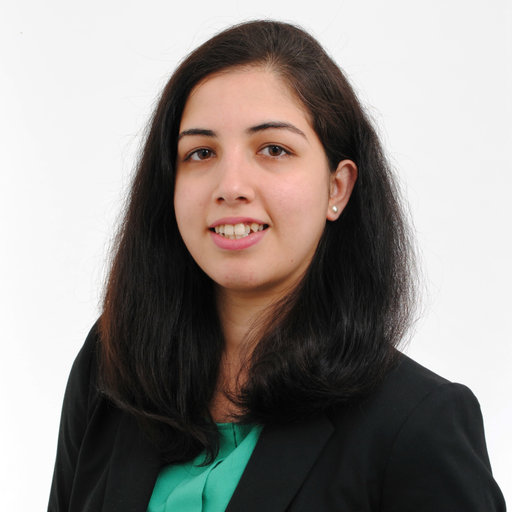
Translational Metabolic Laboratory, Radboud University Medical Centre, Nijmegen, the Netherlands
Expertise: computational metabolomics, mass spectrometry (MS) data analysis pipeline development, MS-based diagnostics in inborn errors of metabolism
List of publication: https://scholar.google.nl/citations?user=q9E2awMAAAAJ&hl=en
Email: purva.kulkarni@radboudumc.nl
Twitter: @Purva_Kulkarni
Metabolomics research in one line: Development of computational MS-based data analysis pipeline and methods for application in diagnostics of inborn errors of metabolism
Purva received her PhD in Bioinformatics from the Max Planck Institute of Chemical Ecology and the Friedrich Schiller University, Jena (Germany) in September 2018. As a part of her PhD project, she developed computational algorithms to analyze mass spectrometry imaging data. She then moved to the Netherlands Institute of Ecology, Wageningen (The Netherlands) to start her first postdoctoral position where she established computational workflows to analyze metabolomics data originating from GC/MS and imaging mass spectrometry experiments. Her core long-term interest lies in developing and applying a range of bioinformatics, machine learning and data analysis approaches to interpret MS based -omics data. As a part of her current research at TML, her focus is on building data interpretation algorithms and robust computational workflows that can help identify disease-related signals from untargeted MS-based metabolomics and glycoproteomics data with direct application in personalized patient diagnostics for inborn errors of metabolism. As a part of her daily work, Purva leads the Bioinformatics activities within TML. She is also a part of the Netherlands X-omics initiative and the United for Metabolic Diseases (UMD) initiative. Since year 2020, she is also serving as a committee member of the Early-career members Network (EMN) of the Metabolomics Society.
Yorrick Jaspers
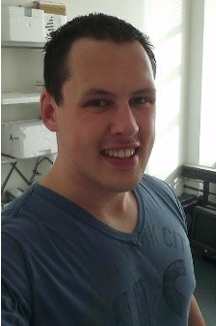
Amsterdam UMC, location AMC, Amsterdam, the Netherlands
Researchgate: https://www.researchgate.net/profile/Yorrick_Jaspers
Twitter: https://twitter.com/yorrickjaspers
Metabolomics research in one line: Development of mass spectrometry based lipidomics and metabolomics methods for the characterization of metabolic diseases.
Expertise: Mass Spectrometry, Lipidomics, MSMS, Ion mobility
Yorrick obtained his MSc in analytical chemistry from the University of Amsterdam and the VU University Amsterdam. During his studies he worked as an analyst at the Analytical Bioscience group of Leiden University where he applied metabolomics in various biomedical contexts. In 2018 he started his PhD in the Lipid Metabolism and Neurotoxicity group at the Laboratory Genetic Metabolic Diseases of the Amsterdam UMC under the supervision of dr. Stephan Kemp. His research is focused on the identification of new prognostic biomarkers for the genetic metabolic disease Adrenoleukodystrophy (ALD). In this context Yorrick develops new lipidomics and metabolomics methods using tandem mass spectrometry in combination with liquid chromatography and ion mobility. These methods are used to follow a large cohort of ALD patients hereby characterizing the complex biochemical changes that result from the multiple phenotypes of ALD with the aim of identifying biomarkers that can lead to personalized medicine.
Alessio Ciurli
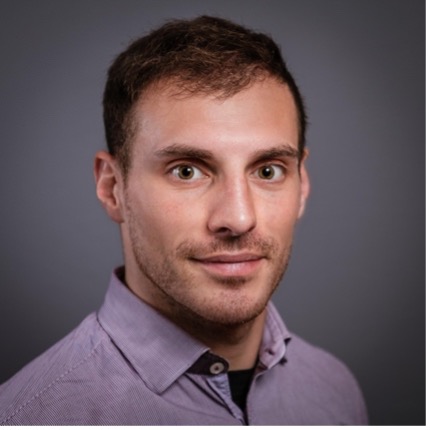
Leiden University Medical Center (LUMC), Leiden, the Netherlands.
Publications: https://scholar.google.com/citations?user=QQUCiukAAAAJ&hl=en
Website: https://cpm.lumc.nl/research/metabolomics-214/alessio-ciurli-11
LinkedIn: https://www.linkedin.com/in/alessiociurli21/
Metabolomics research in one line: Development of smart sampling methods of saliva for LC-MS/SM based untargeted biochemical profiling.
Expertise: Salivomics, LC method development, MS acquisition strategies, LC-MSMS-library, R programming language, MVDA, random forest, and biomarker discovery.
Finishing his PhD at LUMC on “Spatially and temporally resolved sampling of the oral cavity: a window on systemic human health” an Oncode Institute funded project, Alessio started his metabolomics carrier at TUM, Germany. Where during his master project “Kinetic investigation on human metabolomic data of time-resolved plasma samples during a prolonged fasting challenge”, he became familiar with metabolomics data, R language and linear and non-linear regressions. To continuous his academic carrier in metabolomics, Alessio moved to Leiden for a post-graduate internship, under the supervision of M. Giera, which further translated in his current position, under the supervision of J.J.C. Neefjes. Throughout five years of experience, Alessio developed a spatially resolved sampling of the oral cavity, an in-house LC-MS/MS library including retention time, fragmentation spectra and adducts formation, as well as contributed to unveil systemic circadian dynamics observable in saliva. Now, he is part of the board members of the Young NMC with the aim of contributing to the development of the Benelux early-career metabolomic research network.
Sofia Moco
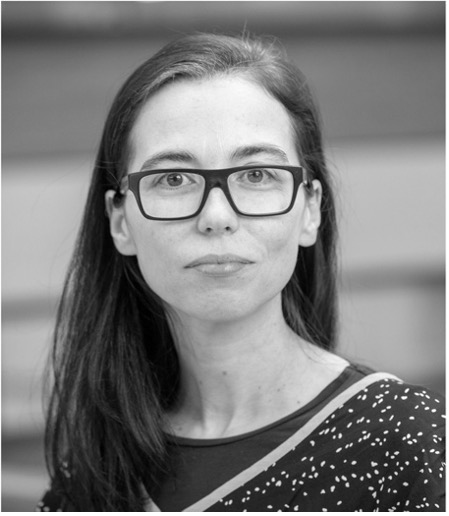
VU Amsterdam, Amsterdam, the Netherlands
Publications: https://scholar.google.com/citations?user=cGftOrQAAAAJ&hl=en
Website: https://research.vu.nl/en/persons/sofia-moco
LinkedIn: https://www.linkedin.com/in/sofiamoco/
Metabolomics research in one line: make use of metabolomics tools to study cellular metabolism
Expertise: mass spectrometry, nuclear magnetic resonance, stable isotopes
Sofia Moco is a chemical engineer and a biochemist (PhD). Since her phD studies at the Wageningen University, she has been developing metabolomics approaches to study metabolism, through monitoring the dynamics of small molecules / nutrients / drugs / metabolites in various biological systems, using LC-MS and NMR. She performed a post-doc at the Institute of Molecular Systems Biology at the ETH Zurich, Switzerland, where she investigated nutrient and bioactive-induced stimuli on central carbon metabolism in higher cells, in the context of cancer. She joined the newly established Nestle Institute of Health Sciences, located at the EPFL campus, Lausanne where she became a Team leader and a Senior Scientist in Metabolomics. She started to work on NAD+ biochemistry in 2016, by developing targeted and untargeted metabolomics approaches, including isotopic labelling experiments, in the context of metabolic diseases, such as ageing and diabetes. Since May 2021 she started a tenure-track position at the VU Amsterdam, the Netherlands, as an Assistant Professor, in the division of Molecular Toxicology, part of the Department of Chemistry and Pharmaceutical Sciences, within AIMMS. At the VU, she is focusing on studying cellular metabolism using LC-MS and NMR metabolomics tools.
Begoña Talavera Andújar
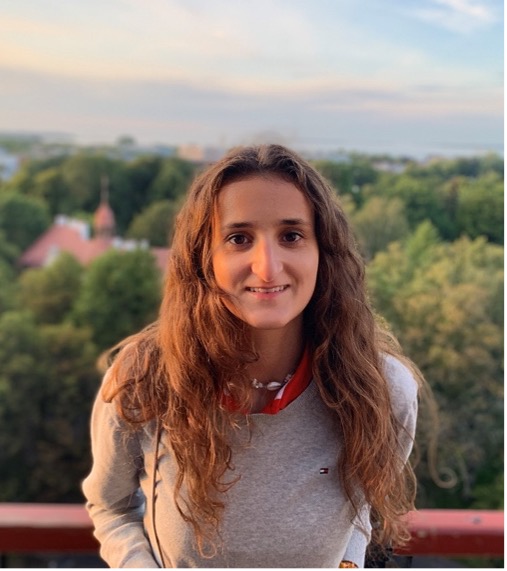
Luxembourg Centre for Systems Biomedicine, University of Luxembourg, Belvaux, Luxembourg
Twitter: @Begotalavera9
ResearchGate: https://www.researchgate.net/profile/Begona-Talavera-Andujar
Publications: https://scholar.google.com/citations?user=lRMof1UAAAAJ&hl=en
Metabolomics research in one line: Nontarget LC-MS of biological and environmental samples
Expertise: Liquid Chromatography, mass spectrometry, metabolomics, non-target data analysis
Begoña studied Pharmacy in the University of Castilla La Mancha (Albacete, Spain). There, she joined a research group where she worked in the optimization and validation of a targeted LC-MS method. Afterwards, she got an internship to go to the Toxicological Centre in the University of Antwerp, Belgium, where she started learning metabolomics. Begoña is currently a PhD student in the Environmental Cheminformatics group (Emma Schymanski’s group) at the Luxembourg Centre for Systems Biomedicine. She is using high resolution mass spectrometry and open cheminformatics tools with the aim of identifying biomarkers that could help us to better understand neurodegenerative diseases such as Parkinson’s disease.
Pablo Vangeenderhuysen
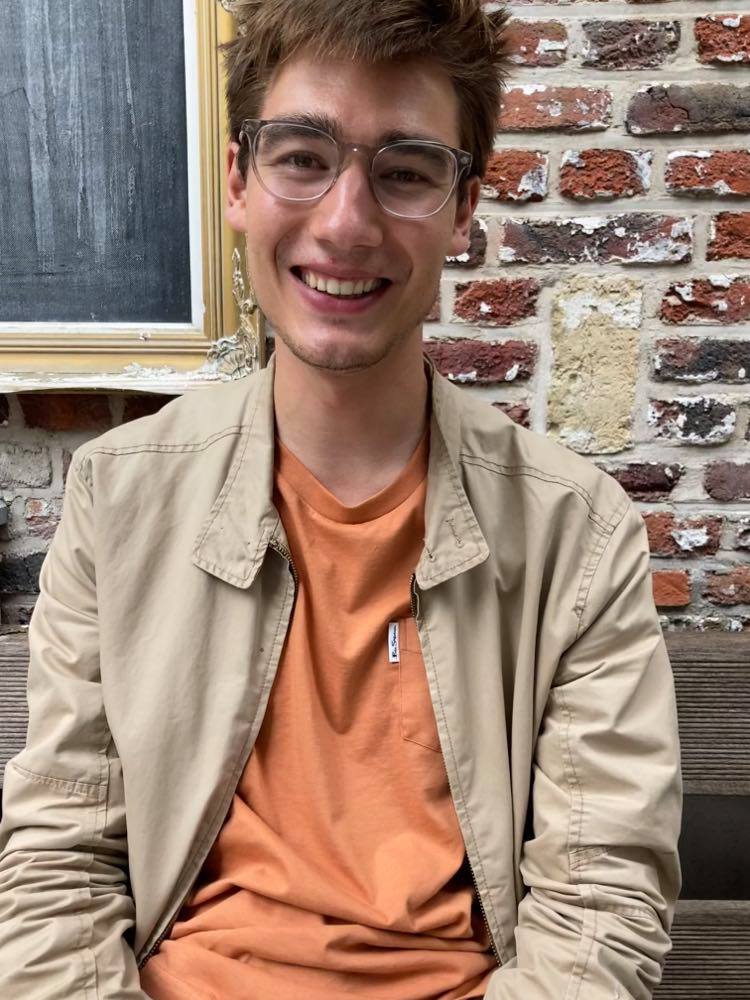
Ghent University, Ghent, Belgium
Metabolomics research in one line: Research and development of bioinformatic tools in LC-MS based metabolomics
Expertise: Data processing and analysis in R, bioinformatics, multi-omics data analysis
In 2021, Pablo graduated as a Master of Science in Bioscience Engineering – Cell and gene biotechnology at Ghent University. During his education, he showed keen interest in microbiology and cellular biology, with a focus on imaging and bioinformatics. For his master’s thesis he worked on multi-modal imaging and analysis of cell walls of trees using atomic force microscopy, X-ray CT and Raman spectroscopy to discover a climate signal in the lignin to cellulose ratio. Following his master’s thesis he started working as a PhD. student at the laboratory of integrative metabolomics (LIMET), led by Prof. Dr. Lynn Vanhaecke. Here, he was introduced to the field of metabolomics and focused his research towards challenges in the development of bioinformatic tools to process and analyze LC-MS data. Furthermore, he learned to combine his interest in microbiology and genomics with metabolomics in multi-omics association studies and the statistical challenges that accompany this type of research.
Justin J.J. van der Hooft - Advisor

Wageningen University & Research (WUR), Wageningen, the Netherlands
Publications: https://scholar.google.com/citations?user=zv9seLwAAAAJ
Website: https://www.linkedin.com/in/jjjvanderhooft/
Twitter: @jjjvanderhooft
Metabolomics research in one line: enhance metabolomics annotation tools to illuminate chemical diversity and novelty
Expertise: metabolite annotation, mass spectrometry fragmentation, metabolome mining
After obtaining his PhD at WUR on a Netherlands Metabolomics Center (NMC) funded project on systematic metabolite identification strategies using LC-MSn and NMR, Justin moved to Glasgow to work on various postdoctoral research projects including optimization of mass spectrometry fragmentation acquisition methods to enhance annotation of polar metabolites extracted from urine, beer, and bacteria. Furthermore, he also implemented GNPS Molecular Networking into Glasgow Polyomics workflows and together with Dr Simon Rogers (University of Glasgow, UK) developed MS2LDA, a substructure discovery tool for MS/MS-based metabolomics data.
During his time in Glasgow, Justin also was part of the Early-career Members Network (EMN) of the Metabolomics Society that he also chaired for a year. At the moment, he is part of the Board of Directors of the Metabolomics Society. He then moved back to Wageningen and is now working on a Netherlands eScience grant that aims to facilitate and explore the combined metabolome and genome mining analysis to accelerate natural product discovery.
YoungNMC Privacy Policy
This privacy policy is valid for the YoungNMC network. It is important to note that whilst YoungNMC is part of the Netherlands Metabolomics Center (NMC) the YoungNMC privacy policy does not extend to the entire NMC in any manner.
Purpose
We are YoungNMC: a network organization with non-commercial purposes that helps to connect early-career researchers within the metabolomics field. Our services facilitate workshops and other activities organised by the metabolomics research community in the BeNeLux area comprising the Netherlands, Belgium, and Luxembourg. As a network organization, we store personal data that are required todeliver our services or to meet legal requirements. This data needs to be stored indefinitely (or until explicitly asked to delete it), so that we can re-contact persons in the future to invite them for YoungNMC related events, distribute newsletters, and provide an overview of available metabolomics expertise amongst the network as means to stimulate contact within the network.
Data Protection
Protecting your privacy on our network is important to us. YoungNMCstores the following contact details: name and degree(s), email address, affiliation, year of latest degree, and expertise areas, of its participants as members of the YoungNMC network. YoungNMC processespersonal data in compliance with EU law (GDPR) and all other legal regulations that may apply. We use Google Drive to store contact details of members.
We need this the above-mentioned data to be able to organise events for the network, to extract and share available metabolomics-related expertise within the network, to assess the membership regularly and ensure YoungNMC remains a network of early-career scientists, and to communicate about the specific workshops or other activities for which participant register.
The YoungNMC members list is used to contact the members about the latest developments within our metabolomics network and to ask for input on organisational matters. Communications with you can be stored in e-mail boxes of our YoungNMC network. We can delete traces of communication with you upon explicit request.
Your rights
You have the right to obtain, upon request, information about the personal data which are stored about you free of charge. You also have the right to demand that false data be corrected or deleted. You have the right to restrict the processing of your data, the right to object to processing, and the right to data portability or sharing. If you have consented to our processing of your data, you can revoke this consent at any time, taking effect from the time of revocation. You also have the right to file a complaint with a data protection authority about the processing of your data by us.
Service Providers
We may employ third party companies and individuals to facilitate our service (e.g. Implementation Networks coordination, outreach and linking, including but not limited to mailings and events organisation) to provide the service on our behalf, to perform service-related services or to assist us in analysing how our service is used.
These third parties have access to your Personal Data only to perform these tasks on our behalf and are obligated not to disclose or use it for any other purpose than as mentioned above.
Contact us
You can contact us if you have questions related to our privacy policy. You have the right to review your personal data. In addition, you can ask us to modify or delete your data. To do so, please contact us at info@youngnmc.nl.
| Attachment | Size |
|---|---|
| 149.21 KB | |
| 142.81 KB | |
| 200.49 KB |
